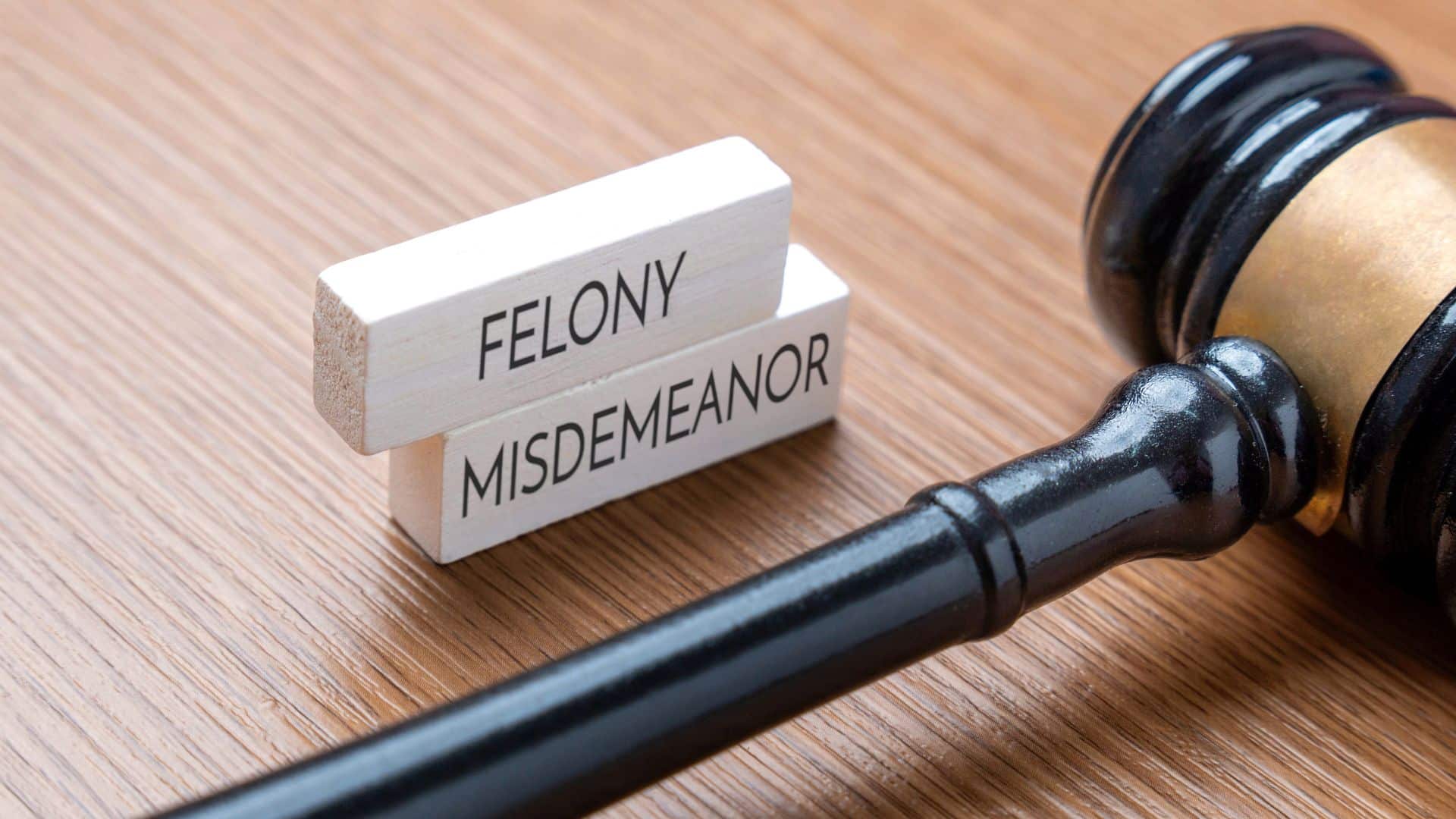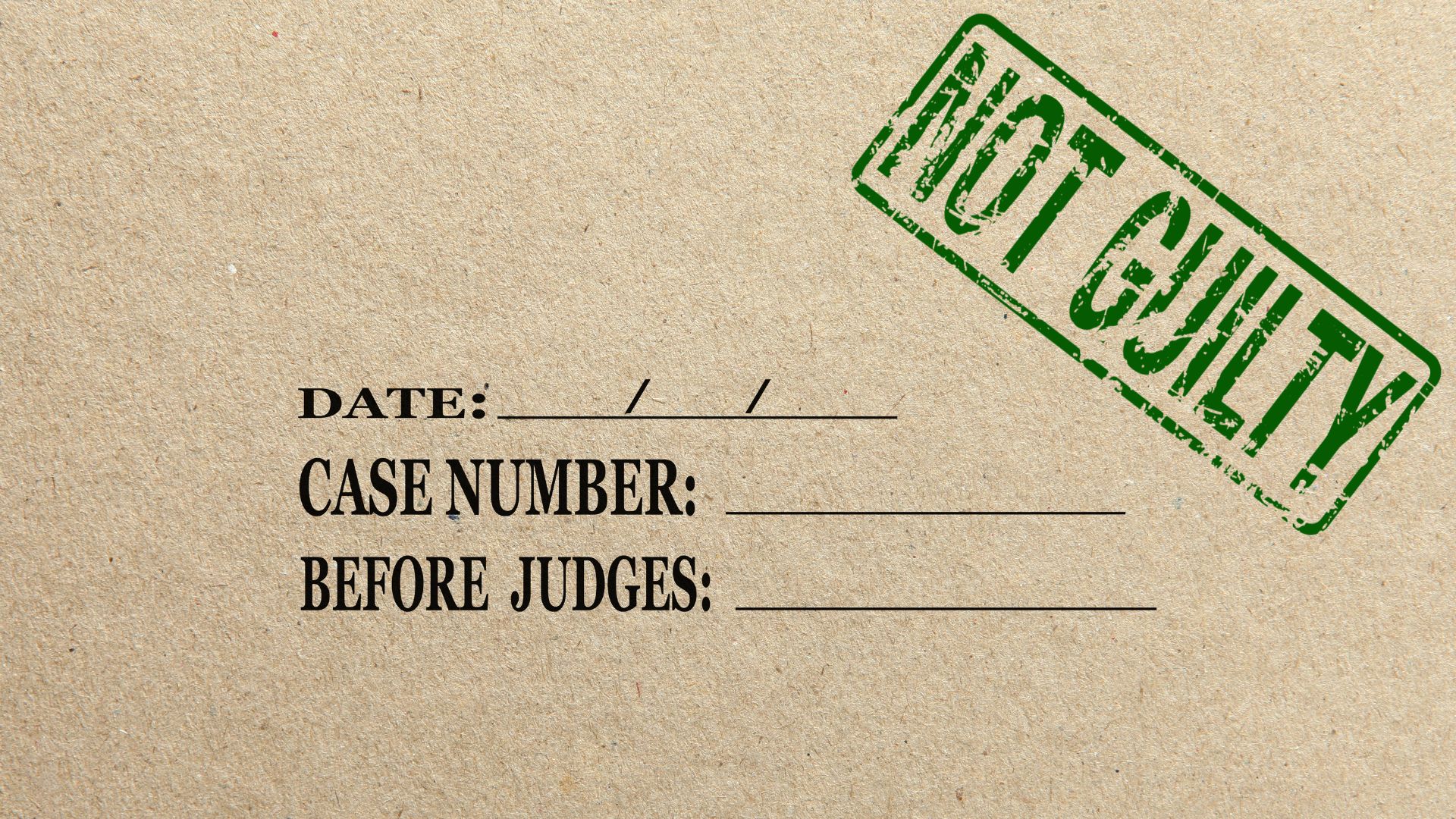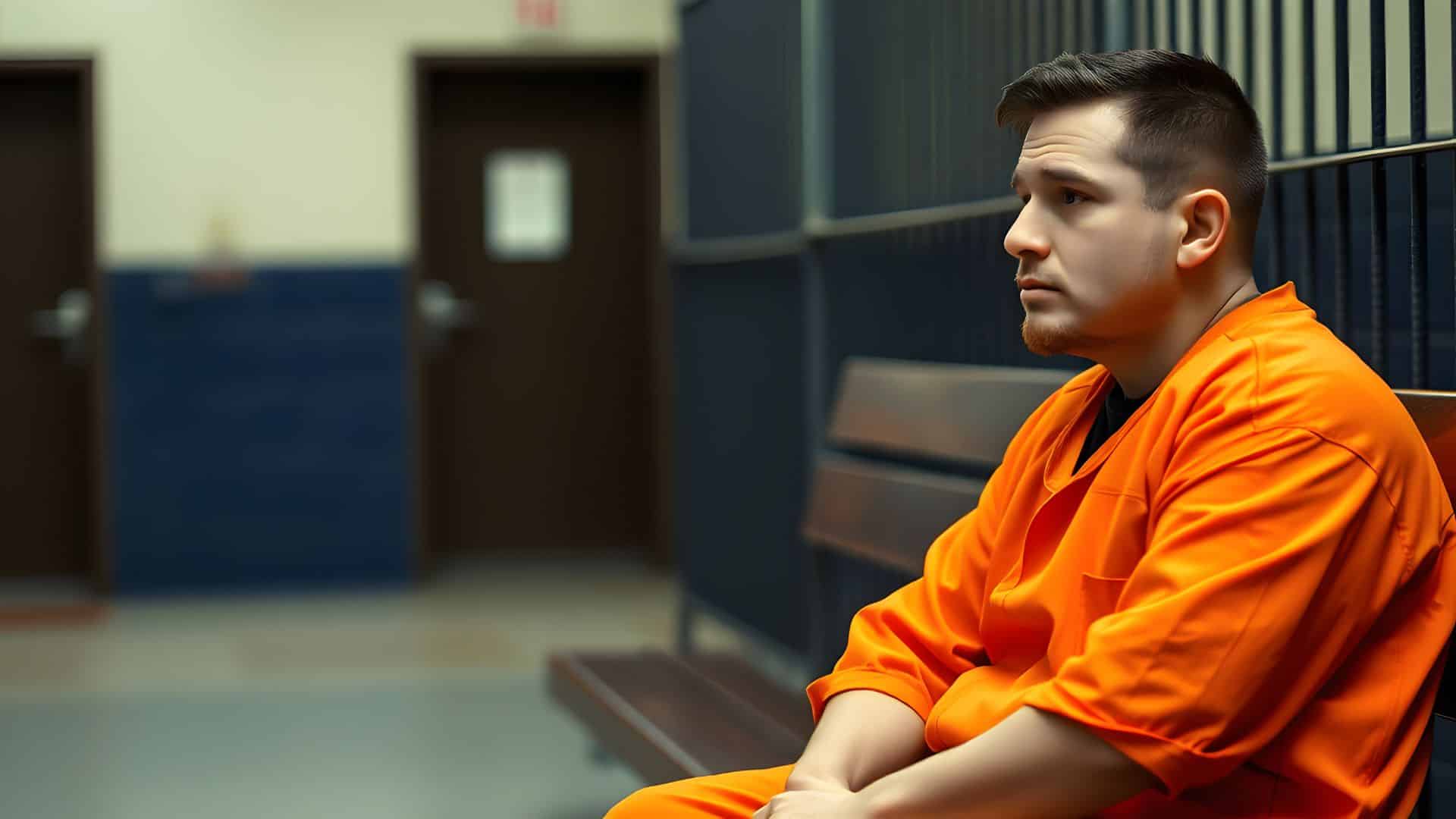Summary: Misdemeanors vs. felonies in Colorado represent fundamentally different charge levels with vastly different consequences. Misdemeanors typically result in county jail sentences of one year or less and fines of up to $1,000. Felonies can lead to state prison sentences ranging from 18 months to life imprisonment. Beyond incarceration, convictions cause severe long-term consequences, including loss of civil rights, employment barriers, and housing restrictions. If you’re facing criminal charges in Colorado Springs, having an experienced local attorney from Perkins Law can make the difference between a conviction and reduced or dismissed charges.
Misdemeanors vs. Felonies in Colorado
Misdemeanors vs. felonies in Colorado represent a critical distinction that can determine the trajectory of your future when facing criminal charges. Facing criminal charges in Colorado Springs can turn your life upside down in an instant. The difference between these charge types could mean the difference between a few months in county jail versus years in state prison. Understanding the difference is vital when you are navigating the Colorado criminal justice system.
The Reality of Criminal Charges in Colorado Springs
You’ve been arrested. Your heart races as the handcuffs click around your wrists. Suddenly, everything you’ve worked for—your job, your reputation, your freedom—hangs in the balance. Whether you’re facing a misdemeanor or a felony, the Colorado criminal justice system can feel like a maze designed to confuse and intimidate you.
Without a trusted and experienced guide, you risk severe consequences that could follow you for years, even decades. Job applications denied. Housing opportunities lost. Professional licenses revoked. The stakes couldn’t be higher when facing criminal charges in Colorado Springs.
Understanding Misdemeanors vs. Felonies in Colorado
When you’re arrested in Colorado, understanding the classification of your charges is the first critical step toward mounting an effective defense. Misdemeanors vs. felonies in Colorado represent two distinct categories of crimes with vastly different consequences and procedural considerations.
Misdemeanors in Colorado: Less Severe But Still Serious
Colorado misdemeanors may be less serious offenses than felonies, but that doesn’t mean you should take them lightly. In Colorado, misdemeanors can still result in time behind bars, substantial fines, probation, and a permanent criminal record.
Colorado’s misdemeanor classification system underwent significant changes in 2022, simplifying the previous three-class system to a two-class structure. Under the current system, misdemeanors in Colorado are organized as follows:
Class 1 Misdemeanors
- Maximum jail sentence: Up to 364 days in county jail
- Maximum fine: Up to $1,000
- Examples: Third-degree assault, some domestic violence offenses, theft of items valued between $300 and $750
For Class 1 misdemeanors classified as “extraordinary risk,” jail sentences can extend up to 18 months. These include offenses that pose a greater risk to public safety.
Class 2 Misdemeanors
- Maximum jail sentence: Up to 120 days in county jail
- Maximum fine: Up to $750
- Examples: Harassment, disorderly conduct, criminal mischief with damage under $300
Drug Misdemeanors
Colorado treats drug offenses differently, with their own classification system:
- Level 1 Drug Misdemeanor (DM1): Up to 18 months imprisonment and/or $5,000 fine
- Level 2 Drug Misdemeanor (DM2): Up to 364 days imprisonment and/or $750 fine
Traffic Misdemeanors
Traffic offenses have their own misdemeanor classifications:
- Class 1 Traffic Misdemeanor: Up to 12 months jail and/or $1,000 fine
- Class 2 Traffic Misdemeanor: Up to 90 days jail and/or $300 fine
Even though misdemeanors are less severe than felonies, a conviction can significantly impact your future. You might face difficulties in finding employment, housing, or dealing with professional licensing issues. When facing misdemeanor charges in Colorado Springs, having an experienced criminal defense attorney on your side can mean the difference between a conviction and reduced or dismissed charges.

Felonies in Colorado: Severe Consequences Requiring Strong Defense
If you are facing Colorado felony charges, you are up against the most serious category of crimes in the state’s legal system. The consequences of a felony conviction are life-altering and long-lasting. When comparing misdemeanors vs. felonies in Colorado, the distinction becomes clear in the severity of punishments.
Colorado classifies felonies into six classes, with Class 1 being the most severe:
Class 1 Felonies
- Punishment: Life imprisonment (Colorado abolished capital punishment in 2020)
- Examples: First-degree murder, kidnapping resulting in death
Class 2 Felonies
- Prison sentence: 8 to 24 years
- Fine: Up to $1 million
- Examples: Second-degree murder, sexual assault with serious injury, armed robbery causing bodily harm
Class 3 Felonies
- Prison sentence: 4 to 12 years
- Fine: Up to $750,000
- Examples: First-degree assault, burglary resulting in injury, kidnapping without serious injury
Class 4 Felonies
- Prison sentence: 2 to 6 years
- Fine: Up to $500,000
- Examples: Second-degree assault, vehicular assault causing serious injury
Class 5 Felonies
- Prison sentence: 1 to 3 years
- Fine: Up to $100,000
- Examples: Criminal extortion, stalking with threats of violence
Class 6 Felonies
- Prison sentence: 12 to 18 months
- Fine: Up to $100,000
- Examples: Vehicle theft (less than $20,000), criminal impersonation
Drug Felonies
Similar to misdemeanors, Colorado has a separate classification for drug-related felonies:
- Level 1 Drug Felony: 8-32 years
- Level 2 Drug Felony: 4-8 years
- Level 3 Drug Felony: 2-4 years
- Level 4 Drug Felony: 6 months-1 year
Beyond incarceration and fines, felony convictions in Colorado carry additional consequences:
- Loss of civil rights: Including voting rights (while incarcerated) and the right to possess firearms
- Employment barriers: Many Colorado employers refuse to hire individuals with felony convictions
- Housing restrictions: Many landlords conduct background checks and reject applicants with felonies
- Professional licensing limitations: Many professions require clean criminal records
- Immigration consequences: Non-citizens may face deportation
You Might Be Interested In: What’s On the Line When Facing Assault Charges in Colorado Springs?
Key Differences Between Misdemeanors vs. Felonies in Colorado
When comparing misdemeanors vs. felonies in Colorado, several distinctions become apparent:
Incarceration Location
- Misdemeanors: Sentences served in county jail
- Felonies: Sentences served in state prison
Court Process
- Misdemeanors: Typically processed in County Court
- Felonies: Handled in District Court with more complex procedures
Right to Preliminary Hearing
- Misdemeanors: Generally, no right to a preliminary hearing
- Felonies: May have the right to a preliminary hearing in some instances
Long-term Impact
- Misdemeanors: Less severe but still create a criminal record
- Felonies: Severe long-term consequences affecting employment, housing, and civil rights
Common Examples of Misdemeanors vs. Felonies in Colorado Springs
Understanding how crimes are classified can help you grasp the severity of charges you might be facing in El Paso County.
Common Misdemeanor Examples in Colorado Springs:
- DUI/DWAI: First and second offenses are typically misdemeanors
- Petty theft: Stealing property valued under $2,000
- Simple assault: Causing minor bodily injury without weapons
- Harassment: Unwanted physical contact, obscene language, or repeated communication
- Disorderly conduct: Fighting in public or making unreasonable noise
- Trespassing: Entering property without permission
Common Felony Examples in Colorado Springs:
- Aggravated assault: Assault that results in serious bodily injury or involves weapons
- Grand theft: Theft of property valued over $2,000
- Burglary: Unlawful entry into a building with criminal intent
- Drug trafficking: Selling or distributing controlled substances
- Vehicular homicide: Causing death while driving recklessly or under the influence
- Robbery: Taking property from a person by force or threat
Also From Our Blog: Probation Violation Defense Attorney: Protecting your Freedom in Colorado Springs

How an Experienced Local Criminal Defense Attorney Can Help
When facing criminal charges, having a skilled attorney can transform your experience within the justice system:
- Case evaluation: Thorough analysis of evidence and charges
- Defense strategy development: Creating a plan tailored to your specific case
- Negotiation with prosecutors: Potentially reducing charges from felonies to misdemeanors
- Constitutional rights protection: Ensuring law enforcement and prosecutors respect your rights
- Court representation: Skilled advocacy at all court appearances
- Sentencing advocacy: If a conviction occurs, fighting for minimum penalties
Why Choose Perkins Law for Your Criminal Defense in Colorado Springs
When facing misdemeanors vs. felonies in Colorado, having the right attorney can make all the difference in your case outcome. Here’s why residents of Colorado Springs and El Paso County trust Perkins Law to handle their criminal defense:
Local Court Knowledge
As a Colorado Springs-based law firm, Perkins Law has intimate knowledge of El Paso County courts, judges, and prosecutors. This local insight is invaluable when developing defense strategies tailored to your specific situation.
Dedicated Criminal Defense Experience
Perkins Law focuses on criminal defense, with extensive experience handling both misdemeanors and felonies in Colorado. From DUI cases to serious assault charges, we understand the nuances of criminal law in Colorado Springs.
Personalized Defense Strategies
We recognize that no two cases are identical. When you’re facing misdemeanors vs. felonies in Colorado, Perkins Law develops customized defense strategies based on the specific circumstances of your case, the evidence against you, and your personal goals.
Commitment to Client Communication
Being charged with a crime is frightening. At Perkins Law, we prioritize clear, consistent communication. You’ll always understand the status of your case, the strategy we’re employing, and what to expect next.
Track Record of Success
Perkins Law has a long track record of successfully defending Colorado Springs residents against both misdemeanor and felony charges, resulting in reduced charges, minimal sentences, and, in many cases, complete dismissals.
Take Action Now to Protect Your Future
The distinction between misdemeanors vs. felonies in Colorado is significant, but both can dramatically impact your life. Don’t face the Colorado criminal justice system alone. The consequences of criminal charges extend far beyond court dates and potential jail time—they can follow you for years.
At Perkins Law, we understand what’s at stake when you’re facing criminal charges in Colorado Springs. Our experienced criminal defense attorneys stand ready to evaluate your case, explain your options, and fight for the best possible outcome.
Contact Perkins Law today for a free, confidential consultation.






